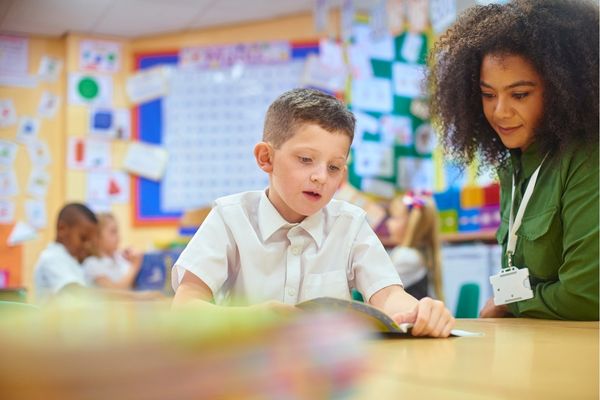A Tumultuous Path for Those Leading the Way
October 01, 2021
Executive Perspective
For educational leaders, being a champion for the children we serve comes at a price. During the last school year, many of our colleagues lost their jobs because they refused to accede to outside pressure to make decisions that were
not in the best interest of the children they served and the staffs they led.
As I reflect on this unprecedented time, I am struck by many examples of the astounding demands being placed on public school administrators throughout our nation
today. No major decision in the school district was fully satisfying. If schools remained closed during the pandemic, it was because education leaders believed the appropriate mitigation strategies were not in place for children and staff to be attending
school in person. Yet many parents and community members criticized them, sometimes in the coarsest tones, for their decision to take this approach.
On the other hand, if children were to attend schools without masks or the appropriate
classroom spacing, superintendents resisted putting students and staff at risk only to be criticized for imposing mask and quarantine requirements. When superintendents felt that it was safe to bring children and staff back, they did so, only to be
chastised by those parents who were still afraid to send their children to school.
Multiple Challenges
When it became apparent that vaccination was the primary national strategy to get the coronavirus pandemic
under control, superintendents turned school buildings in many communities into vaccination clinics, urging students 12 years and older to come in and get their shots.
At the same time, when non-vaccinated students were denied participation
in extracurricular activities, many parents who them-selves refused to get vaccinated lashed out at the superintendent, demanding their children be allowed to participate despite the danger that they posed to themselves and others in group activities.
Even as the pandemic rate began to increase again during summer months and hospitals were filled with infected individuals who had not been vaccinated, the vaccination refusal rate threatened to overtake the capacity of schools to reopen safely
for in-person instruction in the new academic year.
Meanwhile, the COVID-19 crisis presented challenges involving students’ and families’ inequitable access to technology, health and nutrition services, trauma-informed practice
and the social and emotional well-being of both students and staff. Also, the racial unrest that permeated our country and the pernicious inequity that exists in our schools commanded major attention during the pandemic as it became apparent that
millions of children and many homes did not have the computers or internet service needed to receive remote learning.
Superintendents throughout the country ensured children would have food by arranging deliveries to central locations
or students’ homes when necessary. They purchased and delivered computers for the students who lacked them and provided hotspots throughout the community to mitigate the lack of connectivity in the homes.
Political Tussles
Our educational leaders also began the process of providing professional development activities that focused on correcting the inequalities that exist and preventing all students from being marginalized. They began to examine programs in their
districts that were exclusive rather than inclusive and moved to provide opportunities for all rather than just some. The courageous efforts of educational leaders and their staffs to address these profound and long-standing issues have been nothing
short of heroic.
Yet, as has been the case in recent times with so many efforts to promote equity and transform educational practice, everything becomes politicized to the detriment of our children. Wearing or not wearing masks, receiving
or not receiving the vaccine, and denying that inequity exists in American society and that many children are marginalized. What seem to be straightforward and common-sense facts and solutions have become trigger points for emotional conflict and
competing ideological views.
These and so many related paradoxes are challenging educational leaders in districts and states across our country today in a way that seems unlikely to have unfolded in any other era. School board meetings
turn into battlegrounds, recall petitions for school board members abound, school district offices are besieged by Freedom of Information requests intended to overwhelm the office personnel and, increasingly, curriculum is being scrutinized and modified
to free it of anything that may be deemed “objectionable” by someone.
Unknown Territory
This political turbulence and divisiveness are nothing less than a frontal attack on our public education system.
This is not to say that our system has ever been free of disagreements and debate. We survived the reading and math wars, the controversies over outcome-based education and most recently the debate over the Common Core and the attempt at developing
national standards for public education.
But today we seem to have crossed into unknown territory involving a deliberate attempt to deny reality. It is untenable to ignore inequity and continue to deny children the opportunity of being
provided with the education that will lift them out of poverty.
Pushback against using what we have learned from the pandemic to address educational inequities represents nothing less than an attempt to preserve the status quo. It
comes out of a pervasive fear that we are playing a zero-sum game. By giving more to others, we may be taking away from those who already have it.
We are a divided nation, but if there is to be hope for a better future, our public schools
are the route for getting there. Ninety percent of the children in America attend public schools. If you visit an integrated kindergarten classroom, the children are unaware of racial differences. No teacher will ever point to a child in the class
and hold them responsible for the inequity that exists in our world. In the classroom, they are equal, together and eager to resolve the problems that previous generations have created. Let us hope that as adults, we can learn to do the same.
Author
Advertisement
Advertisement
Advertisement
Advertisement




.png?sfvrsn=3d584f2d_3)